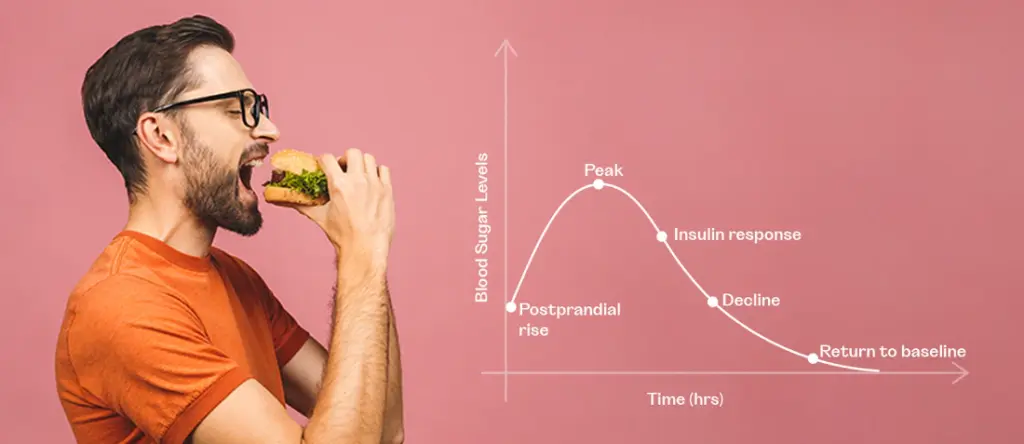
You think you’re doing alright. Skipped the soda, grabbed the “healthy” sandwich, maybe even tossed in a few almonds for good measure. Feeling smug. Responsible.
Then boom—your glucose monitor lights up like a damn slot machine. That sandwich? Betrayed you like a cheating ex.
The almonds? Might as well have been M&Ms. Welcome to the brutal, unfiltered world of blood sugar tracking—where your body doesn’t lie, and your food choices are on trial 24/7.
This isn’t a health app fantasy. It’s raw. It’s real. It’s your metabolism throwing shade at every so-called “clean” bite you’ve been proud of.
And once you start tracking, there’s no going back. You stop trusting labels, second-guess “natural” sugars, and side-eye bananas like they’re plotting your downfall. It’s like pulling back the curtain on a magic trick, only to realize the magician is drunk and the rabbit is diabetic.
Because tracking blood sugar doesn’t just show you spikes and drops—it exposes patterns. Ugly, inconvenient truths that make you question what the hell “balanced diet” even means.
Your mood swings? Maybe it wasn’t Mercury in retrograde—maybe it was that damn oatmeal. That 3 p.m. crash? Surprise, your breakfast set you up for failure six hours ago. The truth isn’t hiding in a diet book—it’s riding shotgun with your pancreas.
And then, there’s the guilt. Oh, the sweet, glucose-spiked guilt. One tiny bite of pastry and your levels jump like they saw a ghost. You feel judged. Not by people, but by cold, hard data.
There’s no filter, no flattering angle, no “I only had a small piece.” The numbers drag you, publicly, with receipts. You start rethinking dinner dates, brunches, and even “healthy” smoothies that hit harder than tequila shots.
But don’t get it twisted—this isn’t about shame. It’s about clarity. Because when you track every bite, every sip, every random cracker you stole from your kid’s snack stash… you stop living in the fantasy that your metabolism is bulletproof.
You learn that food isn’t just food—it’s chemistry, timing, stress, hormones, sleep, and a dozen other things nobody puts on the label. It’s not “bad” food, it’s bad timing. It’s not “clean” food, it’s the wrong combo. This isn’t a diet. It’s detective work.
You start to see the dominoes. That late-night spike that wrecks your deep sleep, that poor sleep that ruins your insulin response the next day, that sluggish morning that leads to a sugary coffee “just to survive.”
It’s all linked. It’s messy. And no one teaches you this in school. They just tell you to “eat less sugar” like that fixes anything. Spoiler alert: it doesn’t.
One of the most jarring things? Realizing how wildly different your response can be from someone else’s. Your friend might down a bowl of rice and barely blink on the monitor. You? Looks like you just drank maple syrup straight. Suddenly, the whole “one size fits all” thing looks like a cruel joke.
“Your body isn’t being dramatic. It’s just finally being heard.”
There’s a kind of power in knowing, though. You start playing food like chess. You learn the moves, the traps, the ways to avoid the glucose rollercoaster that leaves you hangry and half-conscious by mid-afternoon.
You learn which meals make you feel sharp and which ones make you want to crawl into a carb coma. You don’t become obsessed—you become aware. And that changes everything.
It’s not easy. It’s not aesthetic. It won’t get you a six-pack overnight. But it will open your eyes. And once they’re open, good luck shutting them again. Because after tracking, you can’t unsee the sabotage.
You can’t keep pretending “just a little bit” doesn’t matter. You stop negotiating with your cravings like a junkie in denial.
You either run your blood sugar… or it runs you.
Bottom line? Glucose tracking isn’t for the faint of heart. It’s for the curious, the fed-up, the ones who want receipts—not guesses. It’s not about being perfect. It’s about being informed. About finally having a map instead of wandering blindfolded in a minefield of snack packs and misleading health claims.
Because when it comes to blood sugar, the truth might not set you free, but it’ll sure as hell wake you up.
“The more you know, the less you can lie to yourself.”
And maybe, just maybe… that’s where real health starts.









